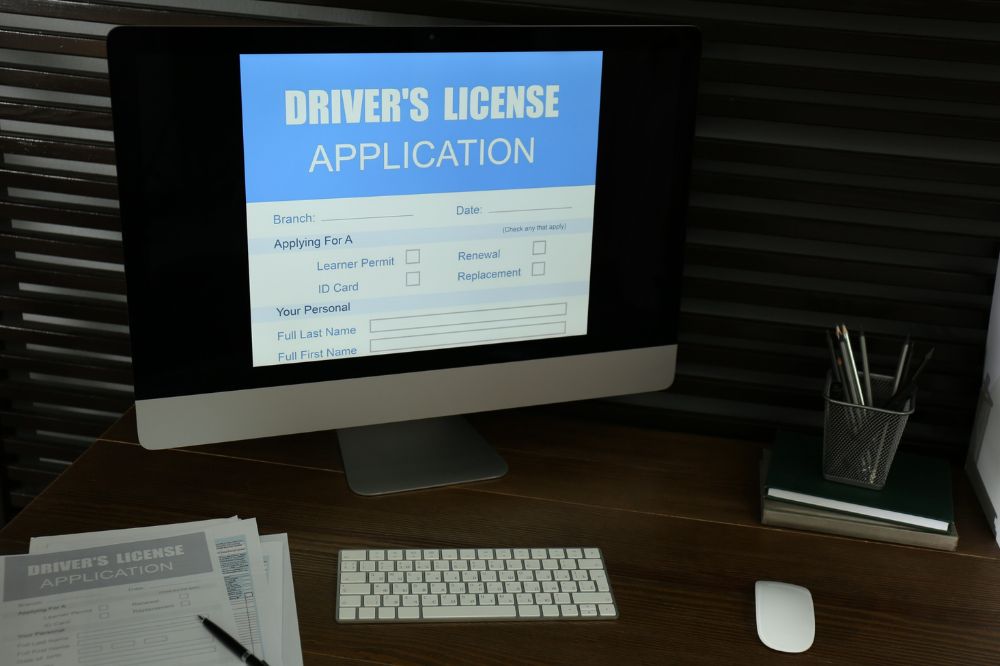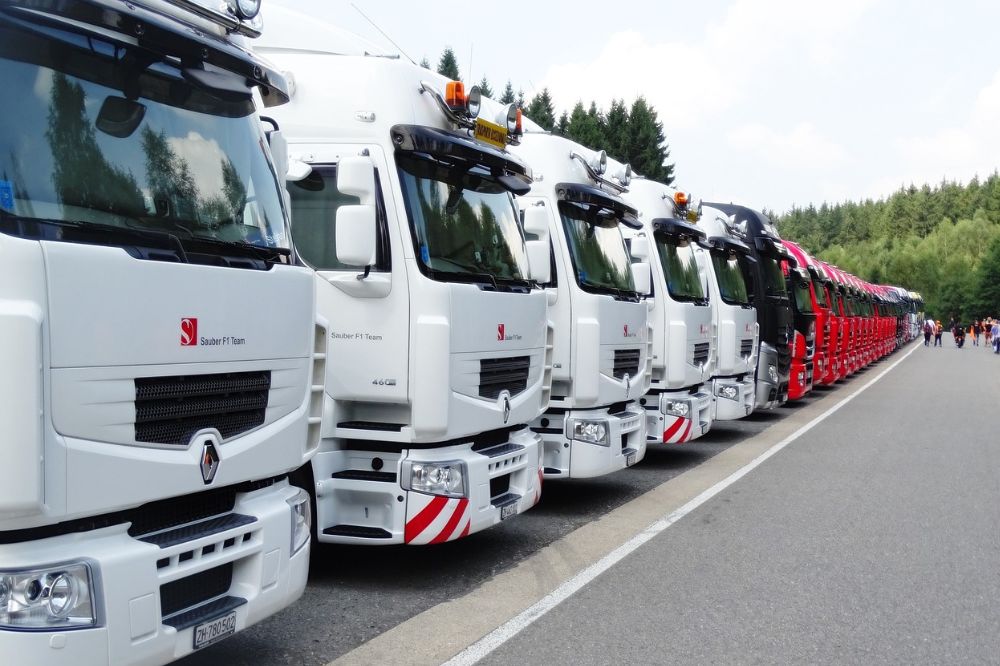
If you’re looking at launching a career in trucking you may want a detailed startup checklist for truck owner-operators to help you start your trucking company on the right foot and set it up to succeed long-term.
Becoming an owner-operator can be overwhelming if you don’t have sound guidance. You must complete lots of paperwork and go through various tests to gather the required documents and meet the safety standards for owner-operator trucking businesses.
Without the required documentation, licenses, and proof of compliance with various federal and state regulations, you’ll sabotage your trucking business before it begins.
Owner-Operator Startup & Compliance Checklist
Here’s our step-by-step owner-operator startup checklist you can use as a roadmap to get your own trucking business up and running smoothly.
Determine your business type and create your business plan
To run a successful trucking business, determine your business type and create a business plan first. There are two types of owner-operator trucking businesses.
- Leased Owner operator. A leased owner-operator operates their truck under the trucking authority of another company. If you choose this route, you won’t have to get some of the legal documents discussed below.
- Owner-operator with own authority. Operating under your own authority means you’re a fully independent trucking business.
Ideally, your business plan should include your trucking business niche, target market, and overall business goals. You also want to evaluate your finances during this step to ensure you have enough budget to begin and run your business well before the profit starts rolling in.

Obtain a Commercial Driver’s License (CDL)
You’ll need to get your commercial driver’s license (CDL) and relevant endorsements, depending on the type of trucking business you want to start.
There are three main classes of CDL licenses in the trucking industry:
Class A CDL. A class A commercial driver’s license is necessary to operate large commercial vehicles, including combination vehicles weighing 26,001 pounds or more. These are the most popular types of trucks used by trucking companies – from tractor-trailers and big rigs to 18-wheelers.
Class B CDL. With a Class B CDL, you can only operate single vehicles weighing 26,001 and above. Or, combination vehicles weighing less than 26,001 pounds, such as delivery trucks, dump trucks, and buses.
Class C CDL. A Class C CDL allows you to operate hazmat vehicles and vehicles designed to carry sixteen or more passengers (the driver included).
Besides your commercial driver’s license, you might require special endorsement for specific types of equipment and cargo.
We recommend getting a Class A CDL because it allows you to operate all types of commercial trucks. Check out our quick guide on obtaining your CDL to learn how to get your commercial driver’s license.
Register Your Business
With your business plan and CDL ready, it’s time to register the venture officially with the state, the Internal Revenue Service (IRS), and the Department of Transportation (DOT). Doing this allows you to get the official business info you require for obtaining licenses and other crucial documents before you begin your operations.
Your location and the business structure you select will determine the process you’ll follow to register your trucking company. There are four types of business structures you can work with in the trucking industry: sole proprietorship, partnership, corporation, and limited liability company (LLC).
Each business structure is regulated differently. There are tax obligations and various liabilities you’ll be responsible for. So, be keen to choose a structure that will work best for you.

Buy or Lease Your Equipment
To get the best trucking equipment, first, decide whether you want to buy or lease your truck. Purchasing your equipment might seem expensive when starting, but it’s the best option if you plan to commit to your business long-term. Leasing is cheaper in the short term, but you’ll likely pay more in the long run.
If you decide to purchase your truck, you’ll have two options – to buy a new or used semi-truck.
Whichever option you choose, partner with an established truck financing institution to ease the financial burden of purchasing your commercial truck.
Consider working with Mission Financial Services to get financial help tailored to your situation. We have suitable loans for first-time buyers of commercial vehicles and can customize our packages further, even if you have bad credit.
Get your MC Number and Trucking Authority
The Federal Motor Carrier Safety Administration (FMCSA) requires all truck companies involved in interstate commerce to have a Motor Carrier (MC) number. This step is crucial if you plan to operate independently under your own authority and haul freight across states.
You’ll also have to get insurance coverage as part of your operating authority application process.
If you plan to operate as a leased owner-operator, you can skip this step. You won’t need your own Motor Carrier number because you’ll be working under the MC number and trucking authority of the company you lease under.
Also, skip this step if you have no plans for operating commercial vehicles across state lines. Owner-operators operating within their state don’t require a Motor Carrier number.
File a BOC-3 Form with the FMCSA
Filing a BOC-3 Form is another mandatory Federal Motor Carrier Safety Administration requirement. It shows you have a designated process agent in the states you operate in. A process agent is an individual or business capable of receiving legal documents on your behalf if people file complaints against you.
The process agent stays on top of all legal communication, helping you avoid unnecessary fines. You can have one process agent representing you in all the regions you operate in to make your work easier.

Obtain Your USDOT Number, IFTA License & HVUT Certificate
Other essential licenses and certificates you require to conduct your operations include:
USDOT Number. Like the MC number, a USDOT number is specific for owner-operators planning to haul goods across state lines. The Department of Transportation will use this number to confirm your trucking business’s registration status, compliance reviews, safety records, ratings, and inspections. Visit FMCSA’s registration portal to get your USDOT and MC number.
International Fuel Tax Agreement (IFTA) License. An IFTA license is mandatory if you operate in multiple states and transport taxable fuel. It allows you to report and pay fuel taxes to one state, simplifying your business processes. To obtain this license, apply through your state’s Department of Revenue.
Heavy Highway Vehicle Use Tax (HVUT) Certificate. If your commercial vehicles weigh 55,000 pounds or more and operate on public highways, you must have an up-to-date HVUT certificate. It shows you pay the IRS’s annual tax for such commercial vehicles. Visit the IRS website to apply for this certificate.
Owner-Operator Compliance Checklist
To ensure owner-operators comply with all FMCSA regulations, the Department of Transportation conducts unannounced audits periodically. There are four primary types of DOT audits you should anticipate:
- New entrant audits. DOT conducts new entrant safety audits to ensure you’re within the safety guidelines as you get your commercial trucking business operations off the ground. Expect these within a year after filing and getting your DOT number.
- Security audits. These examine your company’s driver training and safety plan and your security measures.
- Hazardous materials audits. When performing a hazardous materials audit, the DOT checks your hazardous material labeling, training, plus shipping documentation.
- Compliance review. Commonly known as a targeted DOT audit, this review happens when there’s an indication of poor performance. An indicator could be anything from increased crash rates to citizen complaints. However, FMCSA can also perform random compliance reviews without any cause.
The best practice to ensure you pass all DOT audits and remain in business is to stay on top of your DOT compliance requirements. Some key areas you should focus on being on the safe side include:
- Adherence to hours of service regulations
- Vehicle maintenance and inspections
- Driver qualification and licensing documentation
- Hazardous materials compliance requirements
- Participating in DOT’s drug and alcohol testing program
Final Thoughts
Running a profitable trucking company as an owner-operator can be rewarding. There’s no cap to how much you make as you enjoy autonomy over your trucking business operations. However, you must set it up correctly for this to be true.
Our owner-operator checklist above is well-organized to ensure your business gets off the ground fast. If you follow it keenly, you’ll legally operate your commercial trucking business in many states and avoid the hefty fines that result from non-compliance.
Remember, you can always reach out to us if you need help purchasing your truck to get started. We’ll work to ensure our flexible commercial loans fit your budget and business goals so you can start your truck company on stable grounds financially.


